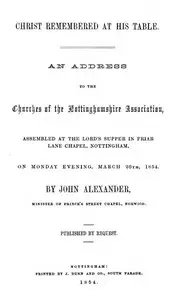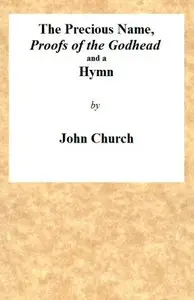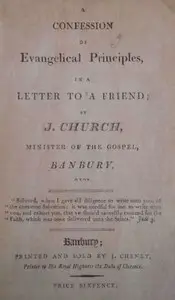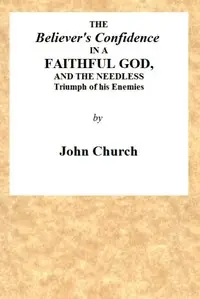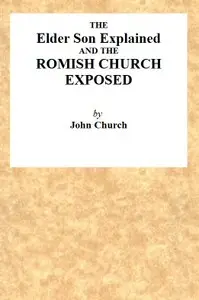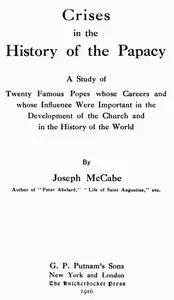"The Glorious Law-Giver, and the Obedient Subject" by J. Church is a sermon that explains the importance of the Lord's Supper—or Holy Communion—for Christians. It emphasizes Jesus Christ's authority as both a leader and king, as well as explaining the meaning of Communion and who should participate. It describes the significance of the church's practices, especially Communion as a sacred act. J. Church shares that the Lord's Supper is a deep connection with Jesus, remembering His sacrifice. The sermon also talks about who is allowed to take part in this special meal, encouraging people not to doubt themselves or feel they aren't good enough, but to always remember they need Jesus and all He has done for them.
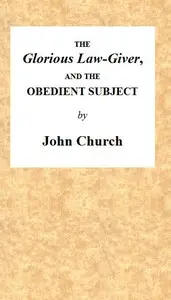
The Glorious Law-Giver, and the Obedient Subject Being the Substance of a Sermon, on the Duty of All Believers to Commemorate the Death of the Redeemer, in the Lord's Supper. Intending to Set Forth the Authority of Christ; the Nature of the Ordinance; and a Description of the Persons Who Have a Right to Partake of the Same.
By J. (John) Church
Discover the revered importance of a sacred meal, where a leader's sacrifice brings together those who honor Him.
Genres
Released
2018-10-02
Formats
mobi
mobi (images)
epub (images)
epub3 (images)
epub
txt
Free Download
Summary
About the Author
John Church was an Independent minister who was most famous for his involvement in the homosexual scandal of the Vere Street Coterie. He is claimed by some as the first openly ‘gay’ ordained Christian minister in England. Contemporary rumours about this are unproveable one way or the other, though circumstantial evidence may suggest that his "inordinate affections which led me into error" could be referring to homosexuality.
John Church was an Independent minister who was most famous for his involvement in the homosexual scandal of the Vere Street Coterie. He is claimed by some as the first openly ‘gay’ ordained Christian minister in England. Contemporary rumours about this are unproveable one way or the other, though circumstantial evidence may suggest that his "inordinate affections which led me into error" could be referring to homosexuality.
Total Reviews
10.0k
Total reviews from Goodreads may change






